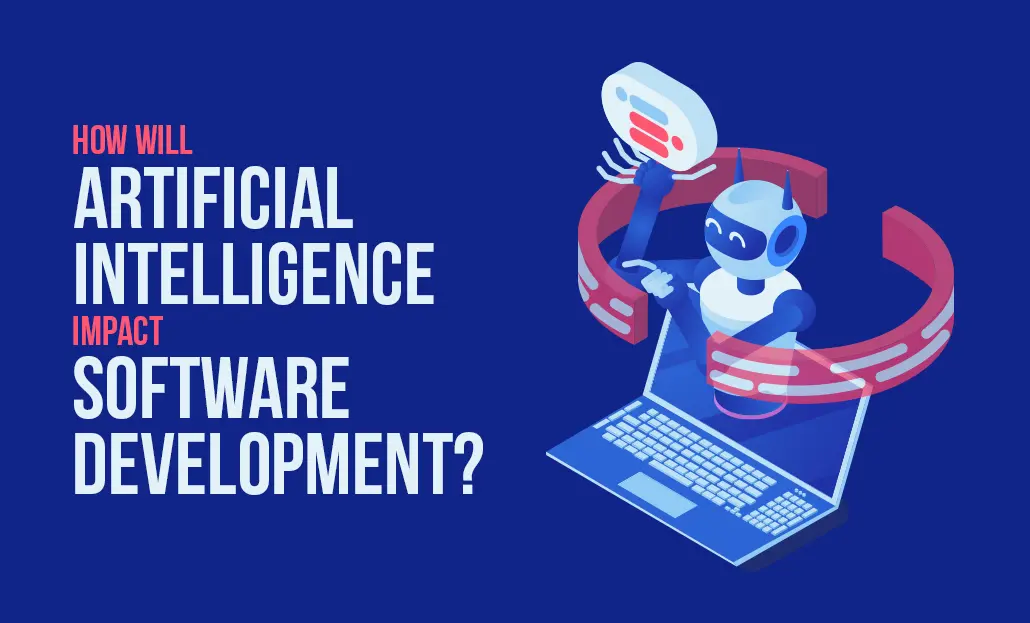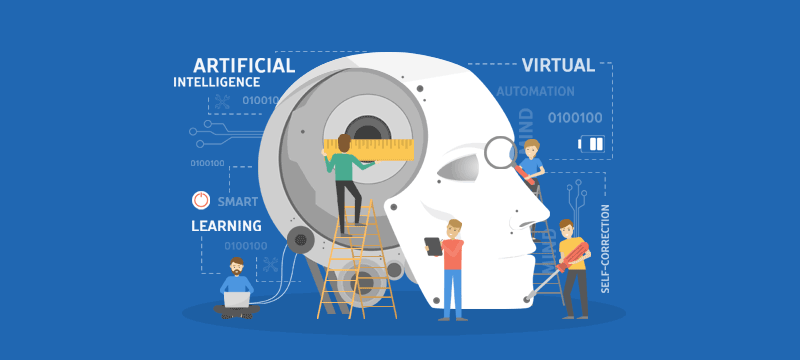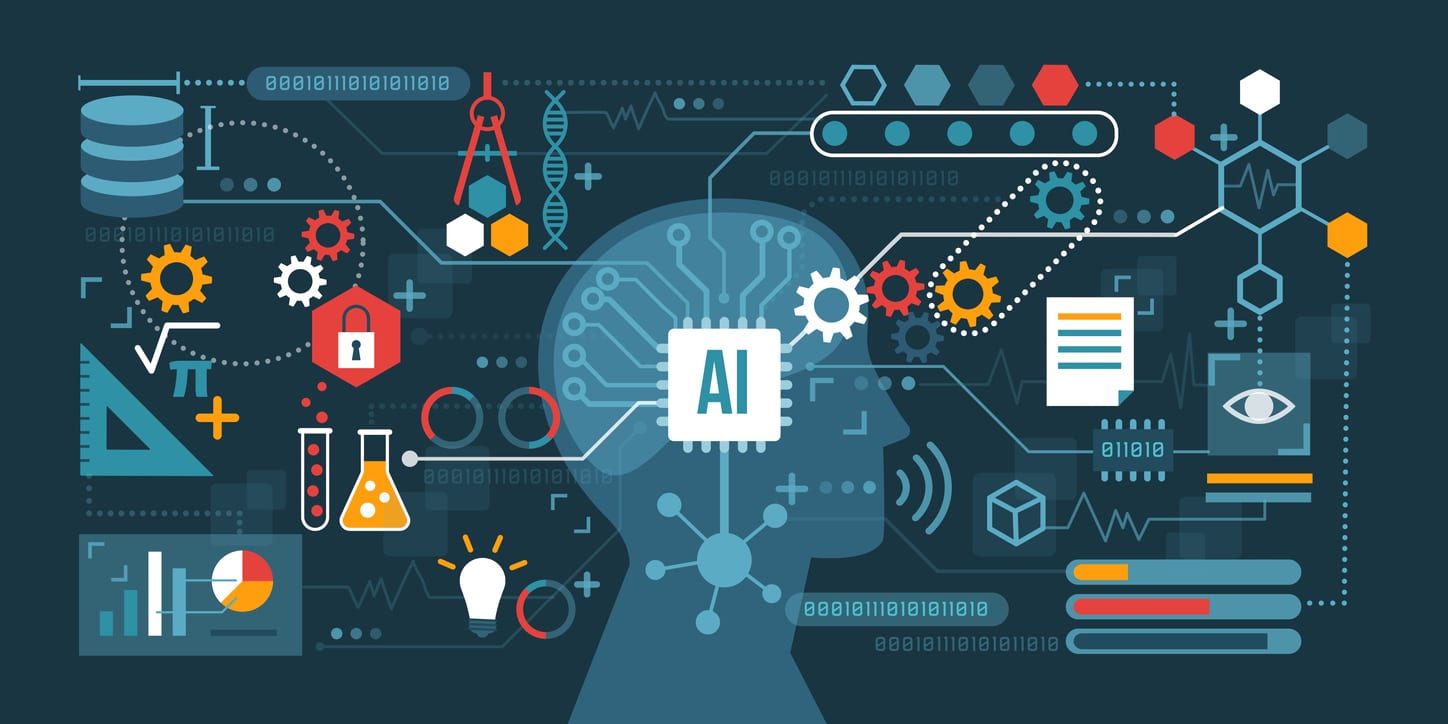How AI is going to change software industry as we know it?

The software sector is being transformed by artificial intelligence. From coding to implementation, AI is steadily improving and assisting in the discovery of a whole new paradigm for technological invention.
The software development cycle is being accelerated by algorithm-based machine learning, and AI is helping engineers to optimize software efficiency at every stage of the process.
As AI brings about revolutionary developments for software developers, tremendous things are to come. In terms of output, quality, and speed, the industry should advance significantly as AI redefines how engineers work and also how their code is created and handled.
AI algorithms can help with automating QA (quality assurance), improve project planning, and improve user experience. According to a recent study, software development using AI enhancements increased developer efficiency by multiple factors.
Here’s how AI is going to change the software industry by bringing these advancements.
Impact of AI on software development
Software design, code production, and testing are all significantly influenced by AI. Let's get into further detail about each topic:
Acquiring requirements
The requirement collection phase of the SDLC requires the most human involvement because it is conceptual. With the help of artificial intelligence, a variety of methods and tools, such as Google ML Kit and Infosys Nia, it is possible to automate some tasks and, to some extent, reduce the need for human participation. This stage places a lot of attention on finding gaps before going on to design.
With the help of artificial intelligence (AI) and a method known as natural language processing, robots will be able to autonomously generate sophisticated software models by comprehending user needs in natural language. Of course, this strategy has significant drawbacks, such as difficulty in balancing the created systems. It is still one of the popular research subjects of today, nevertheless.
Software Design
To suggest a concrete answer, planning projects and developing them requires specific knowledge and experience. Designers have a difficult time choosing the right design for each step without making mistakes. Until the client finds the ideal answer, a retract and forward exploring plan drives dynamic adjustments to the design. The most capable approaches for project design may be made possible by automating some complex processes with AI tools.

For instance, designers can use AIDA (Artificial Intelligence Design Assistant) to comprehend both the demands and the wants of the client and then use that information to design the ideal project. AIDA is a platform for constructing websites that analyses numerous software design configurations and displays the best-customized design based on the client's requirements.
Assist with professional coding
It takes a lot of time and energy to take a company's strategy and write code for such a large enterprise. A strategy that involves writing code before beginning development has been proposed by experts to address the time and cost issues. The method, however, does not work well with unknowns like what the target code is intended to perform because gathering these facts takes significantly longer than building code from scratch. The workload will be somewhat lessened with AI-assisted intelligence programming.
Testing Services with AI
A vital step in the development of software is software testing, which guarantees the product's quality. Performing the very same tasks can be time-consuming as well as expensive if specific software testing is done every time the source code is modified. The key takeaway is that software testing benefits once more from AI.
There are many tools available that use AI to develop test cases and carry out regression testing. You may automate the testing with the help of these AI tools, further ensuring error-free testing. A few platforms for testing that use AI and machine learning.
Deployment Management
The deployment of software was also impacted by AI technologies, which improved the effectiveness of deployment control procedures. According to the software development model, programmers frequently update apps or programmes to newer versions during the deployment phase.
There is going to be a huge danger in running the software if developers don't carry out a task perfectly during an upgrade. AI can shield developers from such flaws during upgrades and lower the likelihood of deployment failure. Artificial intelligence also makes it possible to use machine learning algorithms to examine the deployment process.
What benefits does artificial intelligence provide to the software industry?

Here are some of the advantages of AI in the software industry!
Brings intensification of development in both speed and scale
Key elements of software performance can be used to assess how DevOps will evolve, once AI has been ingrained throughout every facet of it. Key performance metrics that are time-based include deployment frequency, lead times for changes, and service restoration times. Numerous procedures, particularly the testing of software, can be sped up using deep learning or machine learning. Instead of requiring quality assurance analysts to run tests manually, AI can do so automatically.
This not only saves time but also guarantees that more possibilities are tested. Given the significant likelihood of error in manual quality assurance, AI is actually essential to the process. A computer can do quick and precise testing thanks to AI, which lowers the rate of failure and accelerates the development cycle. AI must be used by software developers to optimize operations, cut waste, and transfer time-consuming manual tasks to a machine that can complete them more quickly and accurately. Additionally, deployments will be automatically verified by a hyper-automation platform supported by machine learning, saving even more time. AI can also speed up and improve the accuracy of coding.
The evolution of developers' roles
Because of AI, the function of software engineers is changing. Although it can assist humans with their programming, it will be years before it can write code autonomously or take its place. Conversely, when developers automate jobs and delegate them to an AI system, they are able to focus their talents on a different set of duties and hone collaboration abilities with AI.
Because AI handles routine tasks, programmers may focus on more difficult issues. Their roles will change in this manner. Thus, rather than replacing the software development process, this will enhance it. Indeed, as AI becomes more prevalent, there will be a demand for new types of software developers—those who can collaborate with AI as well as those who can effectively code it.
One day, AI might develop programs, but it will never take the position of programmers. To write better code, software professionals need to collaborate with AI. One method to collaborate is to hand the boring bits of the code off to AI while you handle the difficult ones.
There are a lot of worries that if AI learns to write code, software engineers will become obsolete, yet software development is complicated and need a human brain to guide it.
Improves strategic decision-making
By automating it and minimizing the need for human participation, strategic decision-making AI can have a significant influence. By cutting down on the time spent arguing about which features and products to invest in, AI can radicalise decision-making. Your AI will be able to assess the effectiveness of software and reduce risk if it has been trained using the successes and failures of earlier software.
Since all judgments will be based on analytics, the process of creating software will undergo a revolution in terms of decision-making. By assisting humans in making wiser judgments, computers are going to supplement human intelligence as computational technology and data storage grow rapidly each year.
Risks and expenses connected with them can be reduced with better decision-making based on analytics and historical behavior. AI decision-making will also aid in removing prejudices and mistakes made by humans. Making informed and sensible decisions can be aided by data. Machine learning collects, utilizes, and analyses data before the machine makes decisions using this information.
Error handling
Your artificial intelligence (AI)-powered programming assistant may learn from experience and spot typical mistakes when you give it access to historical data and software analytics. It would be less necessary to roll back if these were identified during the development process. Operations teams can apply machine learning to analyze system logs in the post-deployment stage to proactively highlight faults and find anomalies.
Most software development downtime is caused by error handling, especially if you use a cloud-based platform-as-a-service or software-as-a-service (SaaS). Every moment of delay costs your money and hurts your reputation because clients need your services 24/7.
A developer must manually fix a software issue once it is discovered. It takes a long time to do this. Artificial intelligence allows for the automatic detection and diagnosis of software faults without the need for human intervention. This method is effective and economical.
Presents accurate estimates
Software developers are infamous for being unable to give accurate estimates of costs and timelines. You can acquire accurate estimates from AI that have been based on data from previous projects so that you can forecast the amount of time, effort, and money needed. You can educate AI to learn expertise and context, which are necessary for making a reasonable forecast.
Without AI, it can be challenging to anticipate potential obstacles along the path and how much they will delay deadlines. An organization can use this information to decide which initiatives to approve and which to reject. It benefits your organisation and enhances customer retention when you appropriately tell customers about software delivery.
Link to real-time reactions
Many video conferencing software incorporates user input in-app in real-time to enhance user experience. The way consumers use and engage with your product can alter with real insight from AI-enabled software creation tools.
Algorithms for machine learning can be developed to observe how users interact with a particular platform. A flexible software experience can be built using AI, which can also offer to change material and then give the developer statistics on which on-page elements could use better.
If problems are addressed on the fly in a consistent and systematic way, constant feedback can ensure that the client experiences no limited performance and that software is more accessible.

Conclusion
Many intelligent and effective business has resulted from the quick growth of modern technologies. The software business uses artificial intelligence to stop and avert serious offences. The capabilities of AI's Machine Learning and Computer Vision enable it to revolutionize conventional IT operations, making them intelligent, time-saving, and effective. The main applications of AI have been in quality assurance, service operations, and process automation. Additionally, the idea of MLOps provides a more efficient way to oversee IT operations.
Learned something interesting, stay tuned with us for more information!
Book our demo with one of our product specialist
Book a Demo
